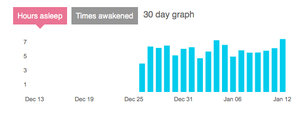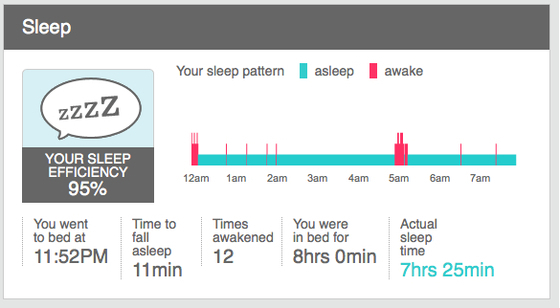Sleep Matters
 I've worked to improve a lot of habits over recent years, most of them related to health and fitness. I've worked on diet, exercise, self-discipline and accountability, just to name some of the big ones. Now I'm learning that in order to have a healthy edge, sleep matters too.
I've worked to improve a lot of habits over recent years, most of them related to health and fitness. I've worked on diet, exercise, self-discipline and accountability, just to name some of the big ones. Now I'm learning that in order to have a healthy edge, sleep matters too.
Once I turned 35 or 40 - after the adolescent days of sleeping until noon and the early morning demands of raising a young family - I considered sleep something that a person did just enough of to ensure that he or she would be able to stay awake and productive the next day. To me, sleep was a necessary evil. That same thinking was reinforced by my night-owl wife whose logic professes that "you can sleep when your dead!" And she's a nurse!

Now, at age 60, I'm finding those sleep deprivation habits that I've built may have been causing me some problems that I didn't even realize. My new Fitbit reminds me on a daily basis that I'm getting less than six hours of sleep each night and that I appear to be a very restless sleeper. My recorded sleep patters show that I tend to wake up about a dozen times each night. No wonder I don't feel rested!
After reading a few online articles about healthy sleep, I can see that the "sleep experts" seem to share some common suggestions. I'll just narrow them down to three.
Exercise during the day will help you sleep better at night, and not because the exercise tires you out more either. As little as 30 minutes of active exercise is said to open up blood passage ways that can make sleep more relaxing. And most sleep advisors encourage us to finish the exercise at least three hours before bedtime.
Consistency is essential to healthy sleep. No matter how demanding our career or family life may be, the experts say it's important to maintain a regular sleep schedule. That means sleeping and waking up at about the same time every night.
Balance in our diets is directly connected to healthy sleep. The less balance we have in our diets the harder our body's metabolism needs to work to break down the high fat and carbohydrates we are trying to digest. Apparently, as that process takes place there is a level of internal discomfort that we experience that prevents us from falling asleep - or at the very least it makes sleeping uncomfortable. Eating more fresh fruit and vegetables, reducing overall amounts of food intake, and being sure to not overdo it on the carbs and protein will help us experience a better, prolonged sleep.
 Last night, I experienced one of the best nights of sleep since I began monitoring my sleep patter two weeks ago. It's just a beginning and I'm having a hard time going to bed before midnight and getting up at six. Now I know it's something to pay attention to and work on. Just another work in progress!
Last night, I experienced one of the best nights of sleep since I began monitoring my sleep patter two weeks ago. It's just a beginning and I'm having a hard time going to bed before midnight and getting up at six. Now I know it's something to pay attention to and work on. Just another work in progress!January Goals And Trends Toward Goals Month To Date.
Exercise: 10,000 steps per day (or more) - Trending positive
Weight: 290 pounds (or less) - Trending VERY Positive
Sleep: 6 hours per day (or more) - Trending Negative
January 12, 2014

